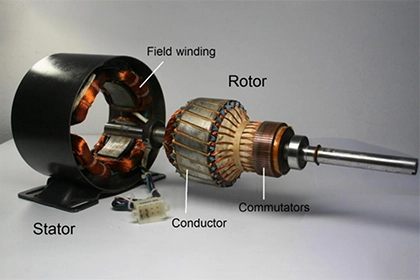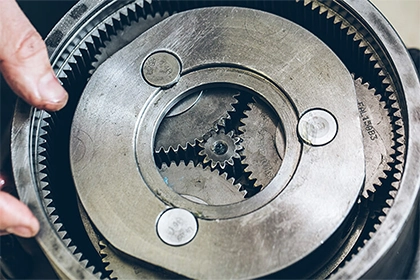
What is the difference between servo and spindle motors?
When it comes to servo motors, many people don't know the difference between servo motors and spindle motors. Here I will introduce the differences between the two.
In general, in terms of use, the servo motor is mainly responsible for the feed of the machine tool, making the workpiece move to the tool or the tool to the workpiece, mainly to achieve cutting work, and has high requirements for torque and control accuracy; while the spindle motor is mainly responsible for driving the machine tool. The spindle, which drives the workpiece or the cutter head to rotate, has high requirements on the output of constant power characteristics to meet the sufficient torque output capacity at different speeds. Their specific differences are as follows:
The spindle motor is a precision asynchronous motor. Because the CNC machine tool has high requirements for motion control, it needs to have good dynamic characteristics, a large speed range, and precise position control accuracy, so a dedicated servo motor is required.
The servo motor operates in the constant torque region between the minimum and the rated speed, while the spindle motor operates in the constant power region between the rated speed and the maximum speed because of the large speed range to be achieved, the spindle motor rated speed is generally lower.
The motor is used to detect the rotational speed of the tachometer generator. The spindle motor uses a position encoder to detect the motor speed. In addition to the conventional A, B, and R-phase sine and cosine signals, the motor encoder also has C-phase and D-phase sine and cosine signals to detect the position of the motor rotor.
- Principle differences
- Differences in the scope of work
- Differences in use
Applications for servo motors and spindle motors.
Since servos are not limited by rotational motion, they can be installed in a wider range of industrial and domestic machines, such as printers, satellites, cameras, robots, and more. Spindle motors emphasize rotary motion. Therefore, they are very suitable as lathes.
Conclusion
The differences between spindles and servo motors lie in how their systems work and how people use them. servo motor uses a closed-loop system, while spindles use an open-loop system that relies on magnets. The servo also has an encoder that sends feedback to the rest of the system to improve accuracy. Despite the differences, both are powerful and precise devices.



Leave a Comment